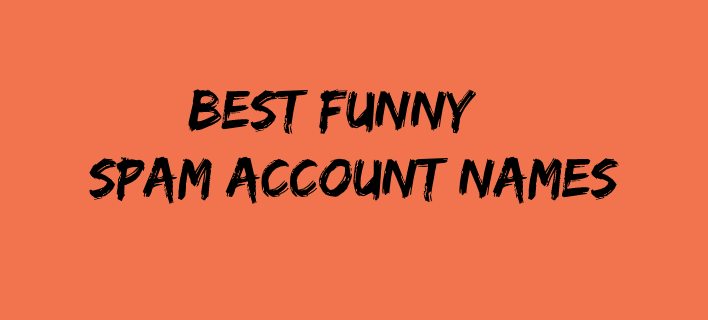Concerns around data privacy have been a major talking point in recent years. Among other uses, businesses use consumer data to send out customized advertising and improve their services. However, consumers naturally have a different perspective. Many people regard data collecting as an infringement of their privacy and a process that may be readily abused, leading to mistrust and skepticism of many businesses.
In 2021, the South Korean watchdog – the Personal Information Protection Commission (PIPC) – fined Netflix for collecting the personal information of 5 million people without their consent. If you thought your streaming service wasn’t collecting your data, you might want to reconsider. I can relate to it because I have been a regular user of Netflix, Disney, and Amazon Prime. And, I must say, they must be collecting data based on our browsing and many other factors. In most cases, they do only for showing the most relevant content to us. But, doing it without users’ consent is what must not be done.
What Does Netflix Have to Do With My Online Privacy?
The ability of Netflix to customize content recommendations for consumers all around the world has contributed significantly to the company’s success. Netflix collects data and uses algorithms to provide a personalized experience for each user.
This may come as a surprise to some, but your Netflix data can reveal a lot about you such as your search history and IP address location. This staggering amount of data is what Netflix uses to build its multifaceted personalization model. For example, Netflix customizes photos, text descriptions, tags, and trailers. It also calculates how much content should be displayed to visitors as they browse and adjusts the size of the cover image for the content.
Some of Netflix’s data is derived from information freely provided by users, such as their name, address, e-mail, payment method, and content evaluations. Other types of data are automatically collected by Netflix, such as the platform used to stream Netflix, a user’s watch history, search queries, and time spent watching a show. Other sources of data that the company acquires include demographic data, interest-based data, and Internet browsing behavior.

Is Privacy the Same as Security?
Security relates to how we safeguard ourselves, our property, and our personal information. It is the initial line of defense against intruders. Our ability to control access to our personal information is defined as privacy – and this is something we can take back if we wish.
Online privacy is strongly ingrained in our basic need for protection. If you consider it natural to secure your home and tangible goods, you should do the same with your digital life. Privacy offers you control over your identity and everything it is built of, regardless of the technology you use (or do not use).
The Meaning of Privacy Has Changed
Mark Zuckerberg, the co-founder of Facebook and CEO of Meta Platforms, said that privacy is no longer a social norm. The Internet, in fact, is altering what it means to be private. When you share something on social media, you choose what to share. We’ve all got that friend that posts sensitive information about themselves on a daily basis, but it’s their information, and thus their choice to post.
However, even the information you don’t post publicly isn’t necessarily private. Every time you type a search term into Google, that term is saved every time you type a search query into Google. Your IP address is issued a random string of numbers that hundreds of thousands of nameless companies can use to provide targeted advertisements based on your surfing activities.
How Can I Protect My Privacy Online?
- Two-factor authentication: This is an extra layer of protection used to ensure the security of online accounts beyond just a username and password, as it requires successfully presenting two or more pieces of evidence to an authentication mechanism Two-factor authentications help to protect our personal information online and provide us peace of mind when browsing the web.
- VPN: A VPN protects your online privacy and anonymity by converting a public internet connection into a private network. It hides your IP address to keep your online activities private. It provides safe and encrypted communications to increase the privacy and security of data sent and received, and this extends from whether you are simply searching for something on the web or using online banking.
- Check privacy settings: Examine the privacy settings on the internet accounts you use, such as Facebook, on a regular basis. Companies make millions, if not billions, of dollars by gathering your personal information. In general, their default settings favor data collection over data protection. The optimum settings for you are determined by what you want to share and what you want to keep private. However, there are a few instances where you should use caution.
- Purge unused apps and browser extensions: It pays to be wary of every app for the sake of security and privacy. With fewer accounts, you’ll be less vulnerable. Download only from trusted sources, such as legitimate app stores. If you stop using an app, delete it as apps you’ve forgotten about can retain hidden functions. Code that tracks your browser activity may be included in popular Chrome and Firefox addons. This data could include sensitive information tax returns and medical records.
- Use Anti-detect Browsers: This is one of the newest technology which is even better than VPN and Proxy. These Anti-detect browsers generate random digital footprints for you which don’t leave any traces of being detected on any website. The only problem is that Anti-detect browsers are very costlier than proxies and VPNs.
Why Should I be Concerned About My Online Privacy?
The bottom line is there is a lot that can be done with the data gathered about someone online. Even seemingly harmless information, such as your favorite restaurants or purchases, can be used to infer your socioeconomic level, preferences, and more. Many businesses have the ability to track and profit from their users’ and customers’ personal behavior.
You probably don’t want burglars to know you live alone or the exact time you’re not home. You don’t want to offer scammers the opportunity to take out loans in your name using your date of birth and other personal information. You also don’t want cybercriminals to deceive you into clicking harmful emails that install malware that logs everything you type.
While there are numerous precautions you can take to safeguard your online privacy, the good news is that the majority of them are under your control. VPNs are readily available and widely used nowadays to ensure online privacy. The most essential thing is to limit what you disclose and to inform companies how to manage your data.







Add Comment